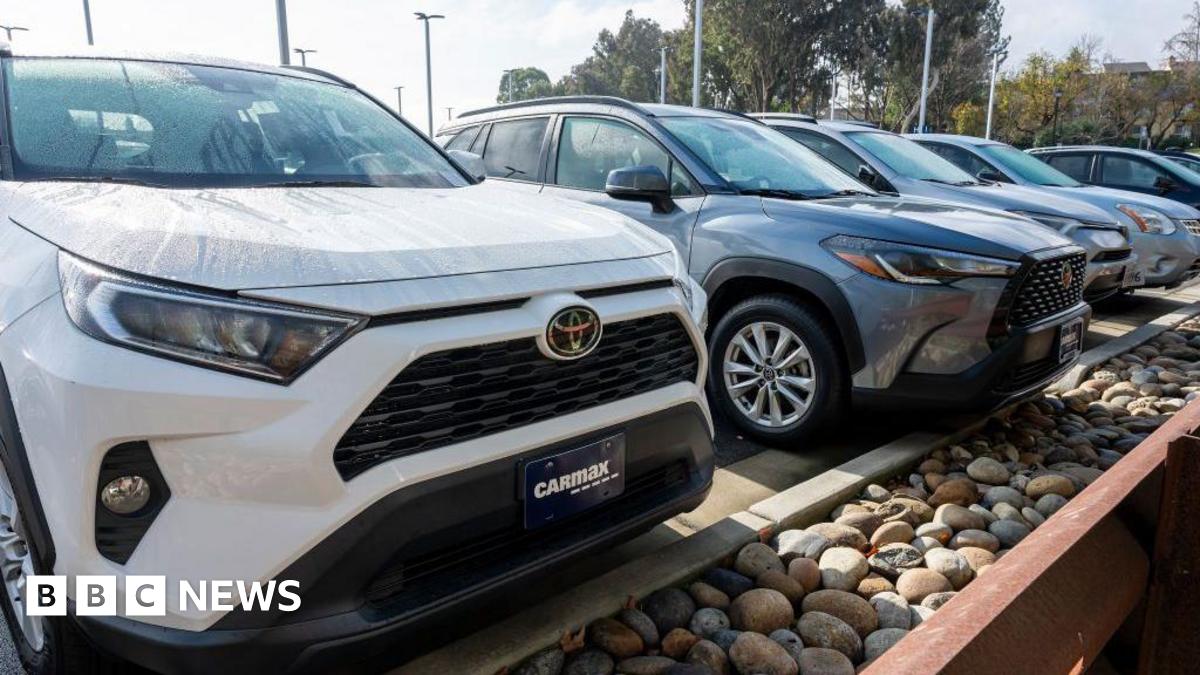Trump's 25% Tariff on Car Imports: A Retrospective and its Lasting Impact
Donald Trump's presidency was marked by significant trade policy shifts, none perhaps more controversial than his proposed 25% tariff on imported cars. While ultimately not fully implemented, the threat alone sent shockwaves through the global automotive industry and continues to have lingering effects. This article explores the context, implications, and lasting legacy of this ambitious trade policy.
The Context: A Trade War Looms
Trump's rationale for the proposed tariff centered on protecting American automakers and jobs from what he perceived as unfair competition from foreign manufacturers, particularly those from Japan, South Korea, and the European Union. He argued that these countries were engaging in unfair trade practices, flooding the US market with cheaper vehicles and undermining domestic production. This policy formed part of a broader trade war strategy employed by the Trump administration, impacting various sectors beyond automobiles.
- "America First" Agenda: The proposed tariff perfectly embodied Trump's "America First" economic nationalist agenda, prioritizing domestic industries over international trade liberalization.
- National Security Concerns: The administration also cited national security concerns, arguing that reliance on foreign car manufacturers posed a vulnerability in times of crisis. This justification, however, was heavily debated and criticized.
- Retaliation Threats: The threat of a 25% tariff prompted immediate retaliation threats from other countries, highlighting the interconnected nature of global trade and the potential for escalating trade wars.
The Impact: Ripple Effects Across the Industry
While the 25% tariff was never fully enacted in its proposed form, the threat itself had a significant impact:
- Increased Prices: The mere possibility of higher tariffs led to increased anticipation of higher prices for imported vehicles in the US, impacting consumers.
- Investment Uncertainty: Automakers faced significant uncertainty about future investment decisions, delaying or cancelling plans for new plants and product development in the US.
- Negotiating Leverage: Ironically, the threat served as leverage in negotiations with other countries, pushing them to make concessions in other trade areas.
- Shifting Production: Some manufacturers explored shifting production to the US to avoid the potential tariffs, albeit at a considerable cost.
The Long-Term Legacy: Lingering Effects on Trade and Global Relations
The proposed tariff, despite not being fully implemented, left a lasting mark on the global automotive landscape and international trade relations:
- Increased Protectionism: The episode fueled a global debate on the merits and drawbacks of protectionist trade policies, raising questions about their long-term effectiveness and impact on economic growth.
- Strained International Relations: The aggressive trade tactics adopted by the Trump administration strained relationships with key trading partners, causing lasting damage to international cooperation.
- Restructuring of Supply Chains: Auto manufacturers, aware of the potential for future trade disruptions, began to reconsider their global supply chains, emphasizing regionalization and diversification to mitigate risks.
Conclusion: A Cautionary Tale
The Trump administration's proposed 25% tariff on car imports serves as a cautionary tale about the complexities and potential consequences of protectionist trade policies. While intended to bolster domestic industries, the threat alone triggered significant economic uncertainty and geopolitical tension. The lasting impacts – from reshaped supply chains to strained international relations – highlight the interconnectedness of the global economy and the importance of carefully considering the ramifications of such ambitious trade actions. The experience underscored the need for a more nuanced and collaborative approach to international trade, avoiding potentially damaging protectionist measures.
Keywords: Trump tariffs, car imports, trade war, protectionism, global trade, automotive industry, international relations, economic nationalism, America First, trade policy.

